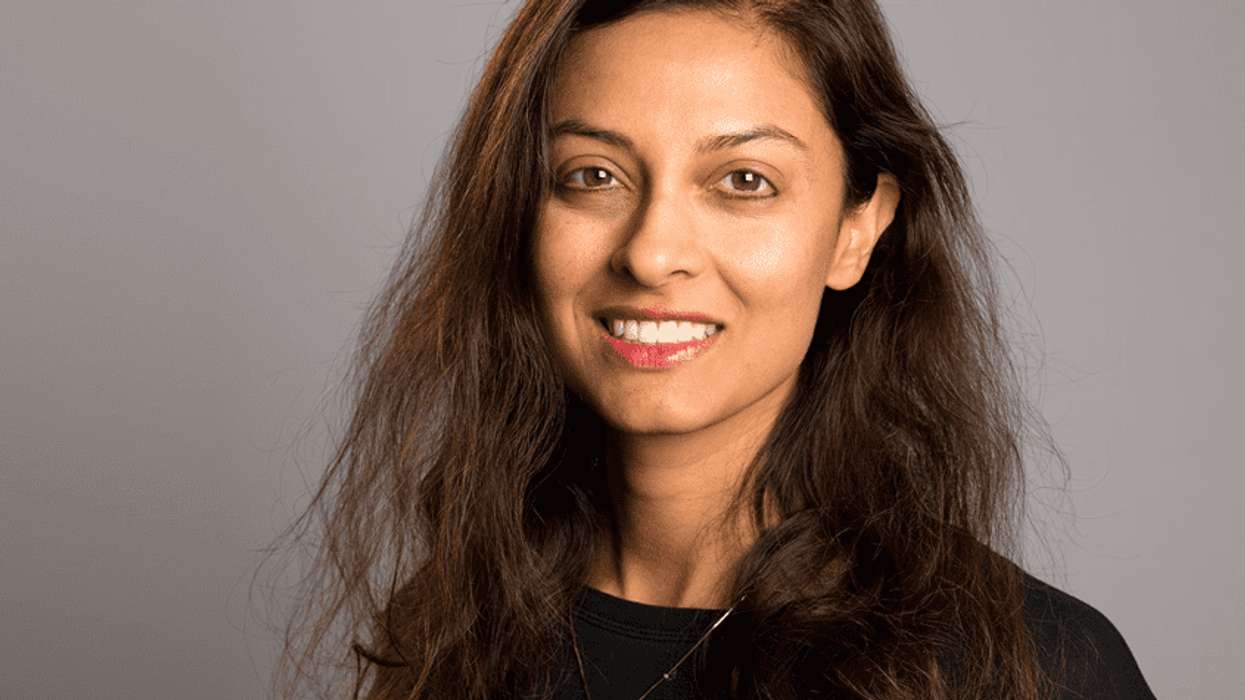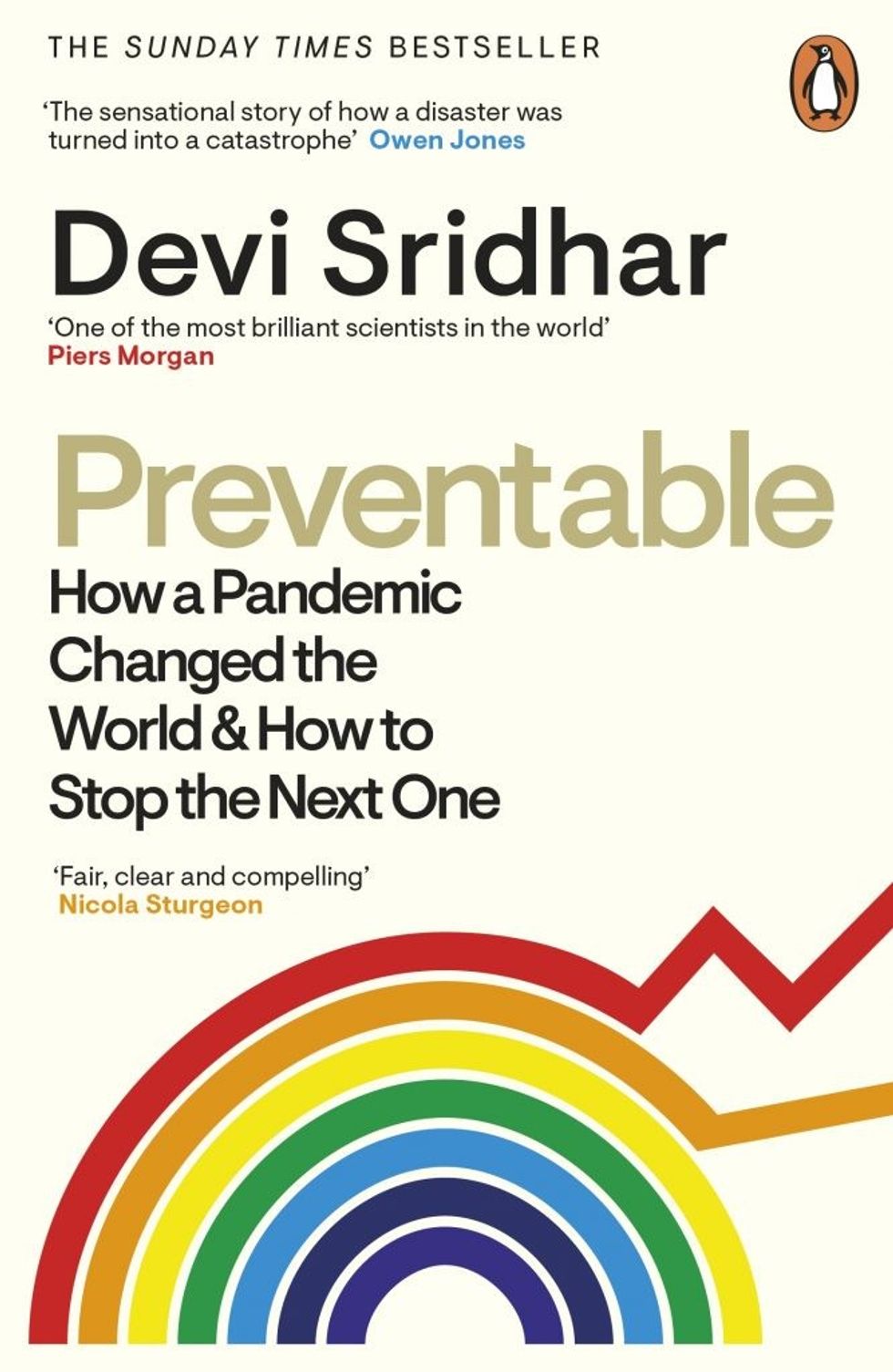Books like Preventable: How a Pandemic Changed the World & How to Stop the Next One become essential reading because they are so timely. The best-seller from Devi Sridhar, now available in paperback, highlights past pandemics and traces the Covid-19 outbreak, from its detection in Wuhan, China, to its devastating effect and race to vaccinate all parts of the world, to protect people.
The professor and chair of Global Public Health at the University of Edinburgh also sets out a vision on how we can better protect ourselves in future by learning key lessons.
By combining science, politics, ethics, and economics, she dissects global structures that determine our fate and how to find a ‘good’ or ‘least worst’ path through a future crisis.
Eastern Eye caught up with the writer, who has served as a policy advisor for organisations including WHO, Unicef and Unesco to discuss her insightful book. The scientist also explained if a pandemic like Covid-19 will happen again, if it’s over, and key lessons we can learn from it.
What inspired you to write this book?
When looking at the 1918 pandemic, I was struck by how little literature and documentation there was during and after the time. It felt like collective amnesia had set in to forget and move forward after a traumatic few years. This made it difficult for future researchers to piece together what had happened, why and how. I wanted to avoid something similar after the Covid-19 pandemic. I wanted to write the book for future generations to understand how the
pandemic unfolded and why different governments took different responses. I also wanted
to explain how it felt to work as a scientist and advisor during a global crisis, and challenges involved with this.
Who are you hoping connects with this book?
The book is for anyone who wonders what we all lived through. It’s written in an accessible style with simple language and is a mix of data and analysis, as well as personal stories. I particularly hope young people will like it given they lived through a historical moment at a transformative time in their lives.
What would you say was the biggest challenge of writing this book?
The biggest challenge was finding time to write it, while working as an academic, and advisor and keeping up with all my other commitments. I enjoy writing, but finding time was hard when we were still in the midst of the storm and my workload was quite high.
What inspired the interesting title Preventable?
It’s intended to be provocative at a number of levels: could the entire pandemic have been prevented? The huge loss of life? Lockdowns and restrictions? How much was inevitable, and how much was preventable? It also gets to the core of public health, which is about preventing disease and death, and helping people live long, healthy, and happy lives.
How important is it to learn from the pandemic?
It’s hugely important to learn from mistakes that were made and to do this internationally: every country did something well (for example Britain’s vaccine roll-out through the NHS was outstanding), but also did somethings sub optimally. So now is the time to reflect on what could have been done better, and the lessons to take away for future outbreaks of infectious disease.
What are some of the key lessons we can learn?
One big lesson is that science delivers solutions, and it has for the past century. And so delaying infections until vaccines, antivirals and better clinical management was the best strategy, and the way to do this was through testing, and measures that imposed the least cost on society and the economy. Another lesson is that healthcare workers are most at risk of infection and death, so adequate PPE stockpiles are vital. That was a major gap for countries: protecting their health workforce.
Did you learn anything new while researching and writing this book?
I enjoyed writing and learning about all the various scientific projects to develop a vaccine that was eventually abandoned. We only heard about the successful vaccines and, even for those, most people don’t understand how they work or how they were developed so quickly. So, I enjoyed explaining that and talking about the attempts that made it quite far, but not past the finish line.
How important has it been for you to make this book accessible to everyone?
I wrote the book in a way that any one can pick it up and read and understand, and hopefully reflect on what has happened. If you can’t explain it simply then you don’t understand it, and so that was the challenge I put to myself.
Do you think another pandemic like Covid-19 will happen again anytime soon?
I doubt we’ll face as difficult a challenge as Covid-19 because the virus sat in the sweet spot of being dangerous enough to cause problems for hospitals and mass death, but innocuous enough in the number of people who had mild or asymptomatic infection. We constantly face infectious disease outbreaks, and how these are managed locally, and nationally is heavily implicated also in whether they become pandemics.
What are your thoughts on Covid-19 not being over?
Pandemics are social constructs. I would argue the pandemic is over when the disease fades into the background, and other concerns become more important to the public and governments. This might happen at different times in different places. In Britain today, the cost of living, heating, and a struggling NHS are top concerns, and so Covid-19 is part of that story, but not the full one.
What inspires you as a writer?
To be able to explain complex thoughts and ideas in simple language. To helpfully provoke dinner table conversations on public health, data and values.
Why should we read the new book?
You might just see the world in a completely different way, and see your own life over the past couple of years with a new mindset.
Preventable: How a Pandemic Changed the World & How to Stop the Next One by Devi Sridhar is published in paperback (Viking, £12.99)





